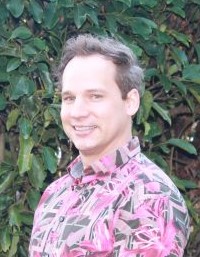Bridging science and business
Commercialisation operates at the intersection of possibility, bridging science and business to transform innovation into real-world solutions for pressing global challenges.
Typically based in universities, public research organisations (PROs) and Crown Research Institutes (CRIs), commercialisation professionals are the unsung heroes of Aotearoa New Zealand’s research, science and innovation (RSI) landscape.
These experts do it all—from analysing markets and managing intellectual property (IP) to forming strategic partnerships and securing investment. They understand that achieving economic, environmental, cultural, and societal benefits requires scientific brilliance and sharp business acumen. Their contributions propel progress, create jobs and accelerate transformative change.
Leading innovation at Scion
Scion innovation manager Amanda Davies leads a team dedicated to turning scientific discoveries into impactful solutions.
She highlights the rapid evolution of commercialisation and its pivotal role in today’s innovation ecosystem. “Successful innovation and commercialisation hinges on groundbreaking ideas and the ability to clearly articulate their value proposition. The magic happens where science and business intersect.”
Amanda says commercialisation professionals excel at bridging the gap between research and industry—two worlds that often speak different languages.
“The New Zealand innovation ecosystem is evolving quickly. We’re nurturing solutions that address global challenges and creating pathways for significant economic progress.”
Her team brings a unique combination of scientific understanding and sharp business acumen. They identify the most promising opportunities, craft compelling investment cases and guide researchers to recognise the commercial potential of their work. Their role goes beyond strategy; they are relationship builders and mentors, earning the trust of industry and investors.
The magic happens where science and business intersect - Amanda Davies, innovation manager
Commercialisation approach
Amanda’s team focuses on aligning business opportunities with the organisation’s mission. The process starts by evaluating the current state of science and identifying the most promising markets. Once potential opportunities are recognised, the team ensures they align with Scion’s goals and partners early with investors to bring the technologies to market.
Specialising in early-stage commercialisation, the team prepares technologies for transfer to investors and commercial partners who bridge the final gap to market entry. Understanding what partners need to see to assess these opportunities is key. This includes developing a solid business case and ‘go-to-market’ plan, which clearly defines the core problem, demonstrates real customer interest, analyses competition and estimates launch costs.
Amanda highlights the importance of a comprehensive, value-chain perspective: “The team works to understand the needs of every participant and incorporates these from the start. This holistic approach leads to more accurate pricing and increases the likelihood of commercial success.”

Success stories in action
One of Scion’s standout successes is a recent partnership with Rotorua-based Upflow. The project to develop livestock feed from geothermal gases shows the power of collaboration in translating research into impactful solutions. Partnering with Māori trust owners, government agencies and universities, Scion commercialisation advisor Anton Steiner worked through the complexities of the technology collaboration to enable a joint approach to commercialisation. The resultant patenting of the technology to protect its future value was a critical step that led to Upflow securing funding from Tauhara North No. 2 and the Ministry for Primary Industries (MPI) to further progress the commercialisation to large-scale trials.
“If successful, a new biomass feedstock manufacturing industry could be established in New Zealand, potentially generating $500 million annually by 2045 and creating skilled jobs,” Anton says.
Enabling effective collaboration demonstrates the importance of commercialisation specialists in creating market-ready solutions. An eight-year collaboration between Scion and UsedFULLY has led to the development of a groundbreaking solvent-free technology to revolutionise fibre recycling. Exclusively licensed to UsedFULLY, this innovation transforms textile waste into high-value products like road-reinforcing fibres, significantly reducing carbon emissions and landfill waste.
Scion’s partnership with UsedFULLY ensured the technology was developed to meet market needs and could be swiftly brought to market by commercialisation specialists working side-by-side with researchers.
This development marks a new era in textile waste management, paving the way for other product innovations and helping New Zealand avoid sending end-of-life textiles to landfills. The technology’s potential for global application is immense, addressing critical issues of textile waste and carbon emissions worldwide.
-
Amanda Davies

Innovation Manager
With a strong background in business and science, she works to connect the research community with industry.
-
Anton Steiner
Commercialisation Advisor
Anton leads projects by providing strategic direction and assessing the readiness of IP for investment.
-
Doug Hillyer

Commercialisation Associate
Doug leads and supports commercialisation projects by working closely with researchers.
-
Krishna Patel

Commercialisation analyst
Krishna has a background in science and a passion for bridging research with industry.

